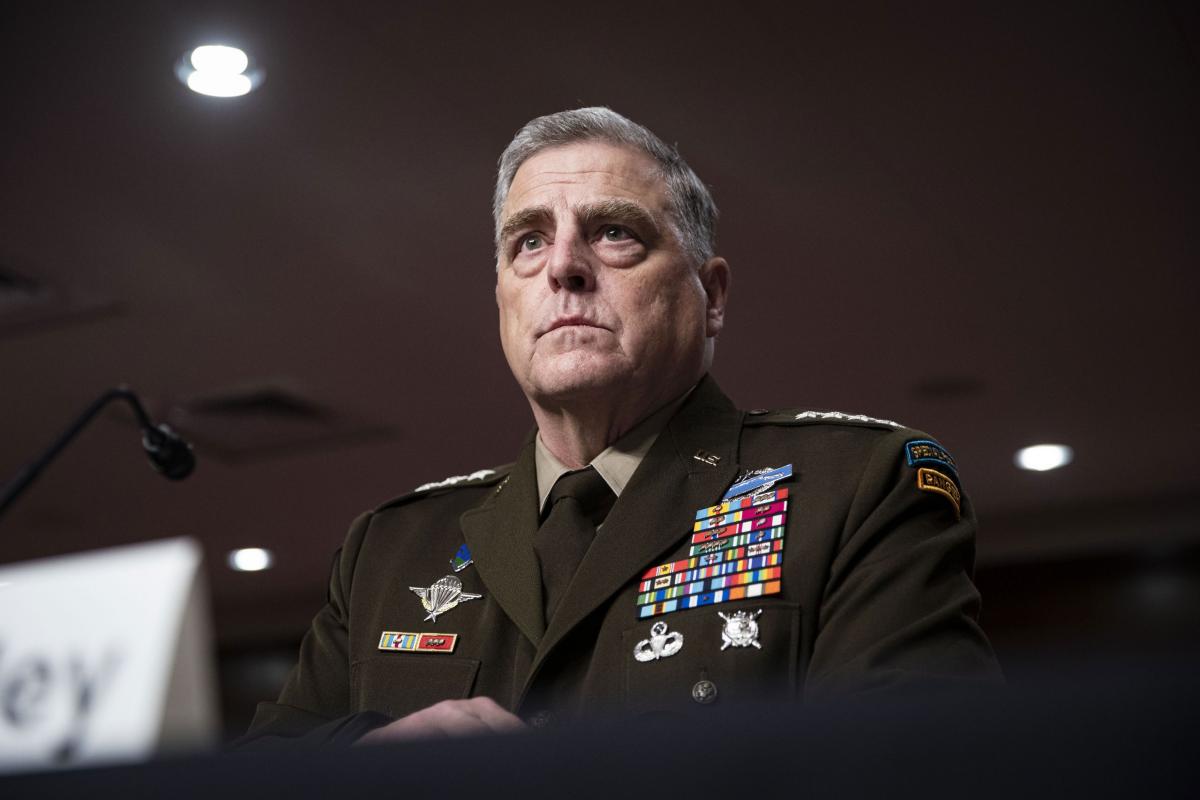A few weeks ago, I opined that General Mark Milley, chair of the Joint Chiefs of Staff, should resign for failing to adhere to the chain of command for having two conversations, at the end of 2020 and beginning of 2021, with his Chinese counterpart, hoping to tamp down concern about potentially hostile actions that China feared might happen during Trump’s last few months in office.
Revelation of these conversations appeared in two different books and a magazine article.
Understanding that General Milley served a reckless, irrational and irresponsible president, capable of questioning and trying to overturn the results of a legitimate election—as verified in courtrooms in response to frivolous lawsuits filed by Trump supporters—I still thought that the nation’s top military officer violated the primacy of civilian rule in a democratic country.
He served his country in a way unfamiliar to his commander-in-chief. He upheld his oath.
I have changed my mind. As he testified in two congressional hearings, Milley had received approval from the then Secretary of Defense Mark Esper to call his Chinese counterpart. Both Esper and Milley had received intelligence that China dreaded combat actions by the volatile, unhinged and impulsive Trump.
Writing this column is as difficult as the previous one. During Trump’s presidency, Americans learned to accept, reluctantly and distastefully, his unpredictable decisions and statements. But few of us would have imagined that he would have deliberately incited an insurrection against the U.S. Capitol on Jan. 6, 2021.
A president who delighted in breaking norms had no compunction in lighting a fuse under a mob of rioters. Domestic terrorism waged against our citadel of democracy proceeded with Trump’s blessing.
Who among us, except the most devout Trump supporters, could have expected such a horrific spectacle?
Who among us, except Trump devotees, felt anything but disgust and revulsion on Jan. 6?
I thought I was watching a horror film. It ended poorly. Perhaps the Chinese did as well.
As noted, I called for Milley’s resignation. I hesitated doing so. It was a painful assertion. I respected him far more than I did our feckless commander-in-chief. I do not agree, however, with Milley’s statement, made during a congressional hearing, that resignation is a political act.
When retired General Jim Mattis resigned as Secretary of Defense in response to Trump’s decision to withdraw from Syria, I never would characterize his stepping down as anything but honorable and admirable. Because he strongly disagreed with the president’s decision, one he simply could not support for its disregard of the value of alliances, he resigned.
As I previously wrote, those serving a president impervious to sound thinking and advice found themselves constantly having to decide if their integrity and honor outweighed their desire to serve their country under a defective leader and person. This dilemma must have plagued competent and decent people in the Trump White House.
Pangs of conscience were an occupational hazard when serving Trump.
Resignations of Jim Mattis, Gen. John Kelly, Gary Cohn and John Bolton, among others, represented a grasp of reality: their sense of selfless public service conflicted with the self-centered, unmoored perspective of the White House.
Gen. Milley acted responsibly in his patriotic contacts with his Chinese counterpart. His boss, Secretary Esper, blessed his calls. The White House knew about the communication. He did not contravene the sanctity of civilian control over the military.
(As I repeatedly proofread this column—as I do with all the ones prior to it— I am aware Trump backers will resent my extensive use of derogatory adjectives when describing our 45th president. They will characterize me an unapologetic Trump-hater.
What I despised was his lack of respect for the presidency and the legacy of its occupants, who, though flawed, viewed service to the nation as superior to themselves. Not one would have instigated a riot).
General Milley was a hero. He and his boss, Secretary Esper, wanted to avoid hostile action by a rival concerned about an erratic president. Hence, Milley tried to reassure an apprehensive world power.
Columnist Howard Freedlander retired in 2011 as Deputy State Treasurer of the State of Maryland. Previously, he was the executive officer of the Maryland National Guard. He also served as community editor for Chesapeake Publishing, lastly at the Queen Anne’s Record-Observer. In retirement, Howard serves on the boards of several non-profits on the Eastern Shore, Annapolis and Philadelphia.



Write a Letter to the Editor on this Article
We encourage readers to offer their point of view on this article by submitting the following form. Editing is sometimes necessary and is done at the discretion of the editorial staff.